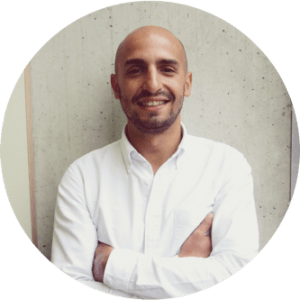From History Masters Student to Startup Project Manager
By UCL Careers, on 21 September 2018
This guest feature from car repair startup ClickMechanic shows us that your degree doesn’t have to dictate your job after university. Kurt, ClickMechanic employee and UCL alum shows us what skills you can transfer from your degree to your work. In his words:
“I would tell everyone, choose your degree and career around what you love and have a real passion for.” Kurt – Project Manager, UCL Graduate: German Language and History MA
Why UCL?
“I came to UCL for two primary reasons: the course modules, which resonated strongly with my interests, and for the world-class lecturers. Further to that it was great to have the experience of living in another place for my postgraduate studies. I am glad I opted to come to UCL, it ended up being a great experience and offered a fantastic opportunity to kickstart my career.
Due to the setup of the course there was a wide range of modules to choose from, and as such an opportunity to learn from lecturers with a variety of interests. All were very passionate about their subjects and had a wealth of knowledge to share. I could tailor my curriculum in the way that I hoped, focusing on twentieth century German history as well as sociolinguistics. Along the way I was also able to broaden my horizon by taking modules in European history and twentieth century modern art.
With UCL being a campus university it meant it was easy to build connections with people from all across the planet and hang out. An added bonus is of course being right in the middle of Central London. There’s a never-ending stream of things to do nearby, and not necessarily expensive if you knew where to go. It’s a great way to make a start with exploring this vast city.”
Work after UCL
“After graduating, I decided to stay in London for a little longer and actually managed to find another place to stay via someone I met at UCL. I got on with finding a role in marketing, a field I had already worked in prior to coming to UCL. On the job hunt, I swiftly found a role at ClickMechanic, the company I still work for. I actually found the job ad on Tumblr of all places and, with my enthusiasm for all things tech and automotive, decided to pursue it.
My initial role was a general marketing position: creating copy for the site, managing social and email channels, handling the pay-per-click ads, and managing customer relations when needed. Being the first employee to join the founders and the only one with any in-depth technical knowledge of cars, meant that I was an integral part of building ClickMechanic’s quote engine, which I still work on to this day.
My course at UCL centred around German language and history, which doesn’t exactly match up with the jobs I ended up pursuing but it’s clear my studies enabled me to refine a lot of skills that gave me an edge when looking for a position.
Current role at ClickMechanic
In my day to day now, as a Project Manager, I work on a variety of projects that necessitate a deep understanding of our product, customers and marketing principles. I help communicate between teams, taking a pivotal role in briefing our software developers on updates to our complex system to help push growth.
In my role there is a lot of data to get my head around, both qualitative and quantitative. It’s the interpreting of all this data where my postgraduate studies at UCL has proven to be very helpful. As in doing postgraduate research, the amount of information and different types of information you have to interpret is complex in most growth-oriented marketing roles, and requires a real attention to detail.
Understanding what is important and what isn’t helps to make informed data-driven decisions that ultimately make ClickMechanic’s product better. I help build the narratives around the data to explore, explain, and ultimately change things for the better with the evidence we assess. This data analysis is vital for many roles, especially in marketing. It’s clear for me that UCL helped nurture an analytical way of thinking, and contributed to building my career in marketing.”
Need advice on what you want to do after graduating? UCL Careers can help.
Visit our contributors website: ClickMechanic
 Close
Close












